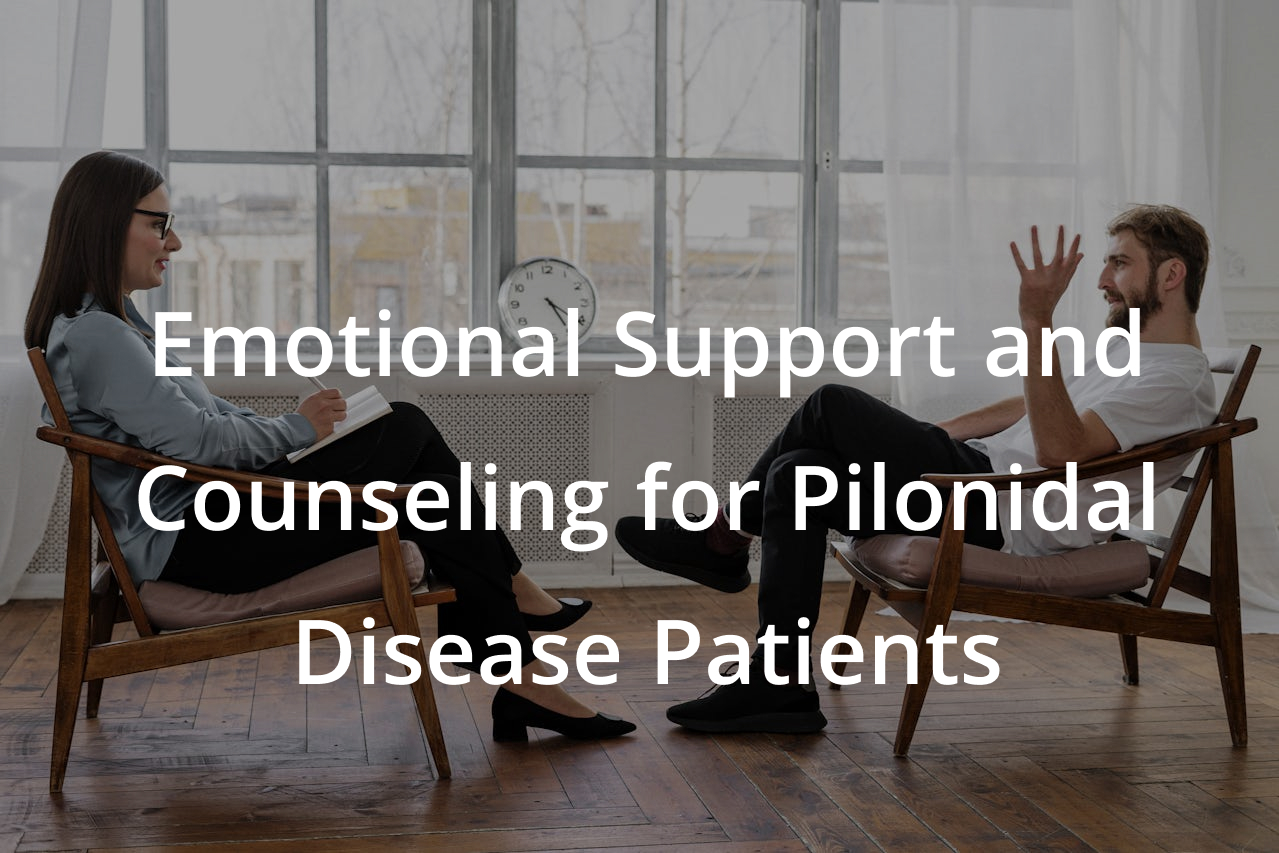May 28,2024
Emotional Support and Counseling for Pilonidal Disease Patients
Living with pilonidal disease can be more than just a physical challenge. The condition, characterized by cysts that develop along the tailbone, can also have a profound emotional and psychological impact on those affected. At Pilonidal Treatment Los Angeles, under the compassionate guidance of Dr. Som, we recognize the importance of addressing the mental health needs of our patients as part of a comprehensive treatment plan. This blog explores the crucial role of psychological support and counseling in helping individuals manage the emotional burdens of pilonidal disease.
Understanding the Emotional Impact of Pilonidal Disease
Pilonidal disease is not only painful but can also be persistent and recurrent, leading to significant emotional distress. The challenges include dealing with chronic pain, frequent medical appointments, and the potential embarrassment and stigma associated with the condition. These factors can lead to feelings of isolation, frustration, and even depression.
- Stress and Anxiety: The unpredictability of flare-ups and the need for potential surgery can cause considerable anxiety. Patients often worry about the impact of their condition on their daily activities, work, school, and social interactions.
- Body Image Concerns: The location of the disease and the visibility of symptoms can significantly affect self-esteem and body image, particularly in young adults and teenagers who are more susceptible to social pressures about physical appearance.
- Impact on Quality of Life: Chronic pain and recurrent symptoms can limit physical activities and social interactions, decreasing quality of life.
The Role of Counseling and Psychological Support
- Providing a Safe Space: Counseling offers a safe and confidential environment where patients can express their fears, frustrations, and feelings about living with pilonidal disease. Talking to a professional who understands the psychological aspects of chronic illnesses can validate a patient’s experience and alleviate feelings of isolation.
- Coping Strategies: Mental health professionals can equip patients with effective coping strategies to manage the emotional aspects of the disease. These may include stress management techniques, relaxation exercises, and methods to enhance resilience and emotional regulation.
- Cognitive Behavioral Therapy (CBT): CBT is particularly effective in helping patients reframe negative thoughts about their illness. It can also help address any depressive or anxious symptoms by altering dysfunctional thinking patterns and behaviors.
- Group Therapy and Support Groups: Participating in support or group therapy sessions can connect pilonidal disease patients with others facing similar challenges. Sharing experiences and coping strategies can provide additional support and reduce feelings of isolation.
Integrating Emotional Support into Overall Care
- Holistic Treatment Approach: Dr. Som advocates for a holistic approach to treating pilonidal disease, which includes addressing both the physical and psychological aspects. Integrating emotional support into the treatment plan ensures that patients receive comprehensive care that considers their overall well-being.
- Educating Families and Caregivers: It’s also important to educate families and caregivers about the emotional challenges associated with pilonidal disease. Support from loved ones is crucial and can significantly impact the patient’s recovery and mental health.
- Collaboration with Mental Health Professionals: Regular collaboration between the healthcare team and mental health professionals ensures that the patient’s psychological needs are met. This multidisciplinary approach facilitates a more tailored and effective treatment plan.
Encouraging Self-Care and Advocacy
- Promoting Self-Care: Encouraging patients to engage in self-care activities that promote physical health and emotional well-being is vital. These include regular exercise, a healthy diet, and activities that reduce stress, such as meditation or hobbies.
- Empowerment Through Education: Educating patients about their condition and its management empowers them to take an active role in their treatment. Knowledge can reduce anxiety and help patients make informed decisions about their care.
Conclusion
The emotional and psychological impacts of pilonidal disease are significant, but with the proper support, they can be effectively managed. At Pilonidal Treatment Los Angeles, Dr. Som and his team are committed to providing comprehensive care that includes psychological support to ensure patients cannot navigate their condition alone. If you or someone you know is struggling with the emotional aspects of pilonidal disease, please reach out to our clinic. We are here to support you every step of the way, helping you achieve physical healing, emotional resilience, and well-being.
